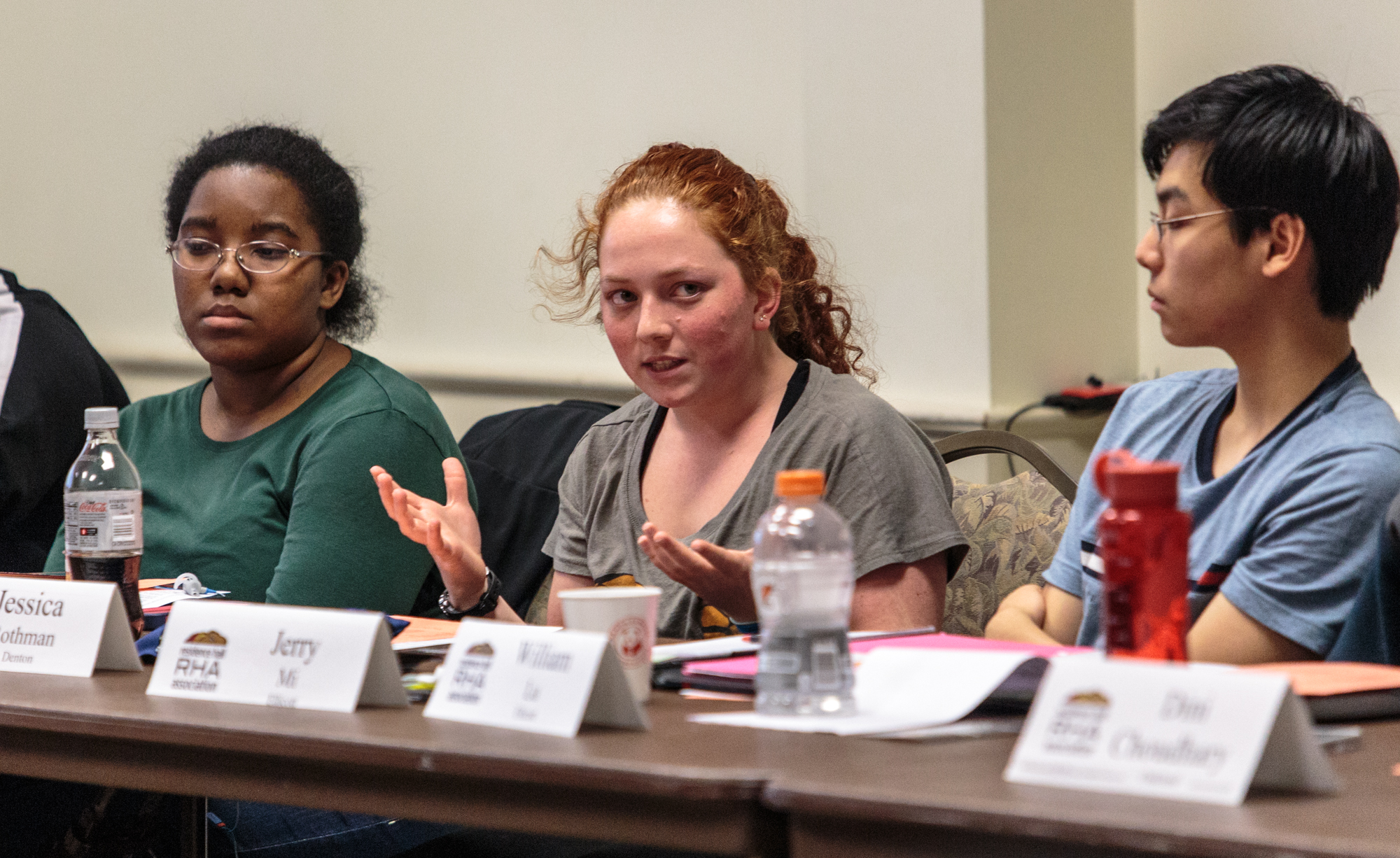Next year, the dorm desks of incoming students could be a little bit emptier.
The Residence Hall Association Senate unanimously passed a resolution Tuesday urging the Department of Resident Life to discontinue printing student planners for on-campus residents. Typically, the planners are provided to students who live in dorms when they move in.
“The question you have to ask is: What is the purpose of these calendars? And to that I have no answer,” said Steve Chen, a junior biology and individual studies major. “I guess to me, it’s to practice recycling.”
Resident Life has traditionally printed 14,000 planners each year. For the 2015-16 academic year, the cost was $19,870.
According to the resolution, the vast majority of students never touch the planners.
“It’s a huge waste of paper, and I think it’s a huge waste of funds,” said Sasha Galbreath, a junior government and politics major and the author of the resolution. “People have proposed printing fewer, but because of economies of scale, it would be a lot more costly [per unit].”
In response to continued discussions about diversity and several recent incidents involving homophobic language and swastikas being written on white boards, the senate also voted to support the University System of Maryland’s decision to rename Byrd Stadium to Maryland Stadium.
The University System of Maryland’s Board of Regents voted to change the name in December, after university President Wallace Loh wrote a recommendation letter in which he said the “values of racial segregation and discrimination are associated with [Byrd’s] iconic name and legacy.”
The symbolic gesture was a part of a larger resolution urging continued efforts to support diversity and inclusion on the campus. An additional clause announced the RHA’s support for the Maryland Dialogues effort to promote conversation about the role of diversity on the campus and in students’ lives.
“The issues of diversity and inclusion that we see are very pertinent to us at RHA,” said Allison Peters, a senior government and politics and history major and president of the RHA. “When the RHA decides it wants to take a stance on something, it shows that we care. In order to create change, we need to show that we care.”
The final vote count was 35 to 2, with no abstentions.
The candidates for president and vice president of the RHA Senate also presented their platforms during the meeting.
Galbreath, chairwoman of the Transportation Advisory Committee, is running for vice president, while Chen, RHA student groups and organizations liaison, is running for president.
Elections are scheduled for the next senate meeting on April 5. Both candidates are running unopposed.



